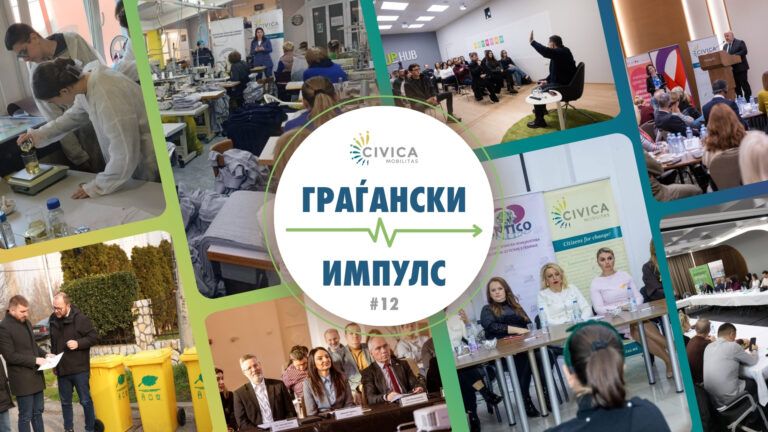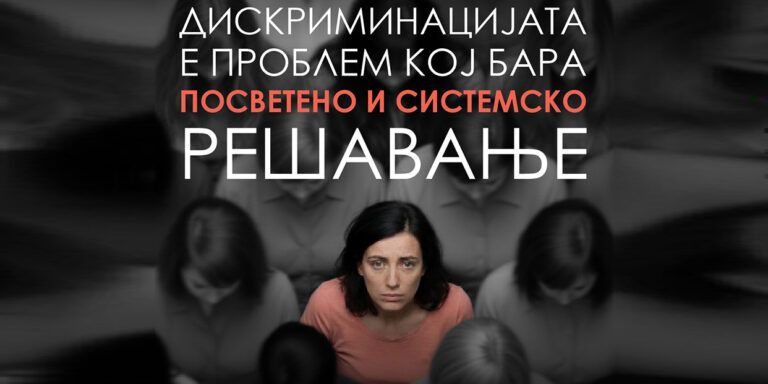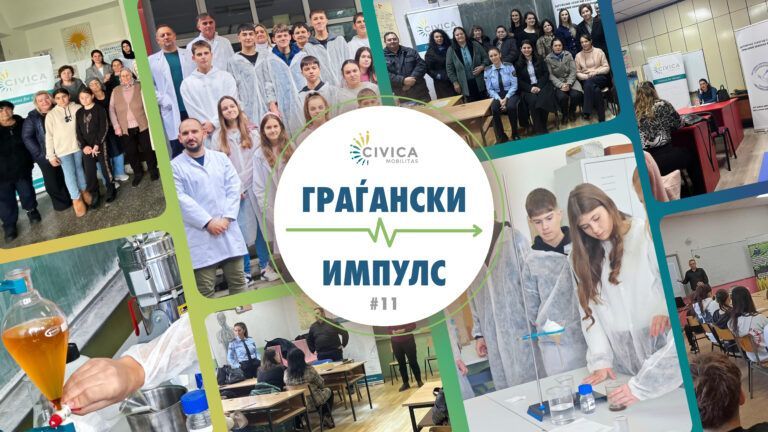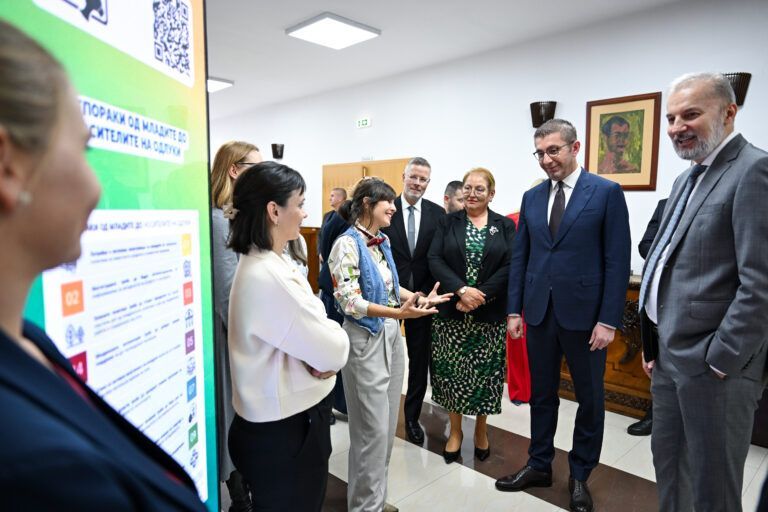The secrets of successful mobilization
What does community mobilization mean, why is it important, what is its purpose, motive, and what is the role of the civil society organizations? These questions were only a part of the introductory presentations and discussions which were developed at the thematic forum of Civica Mobilitas, held on 13 October 2016 in the Educational Center М6 in Skopje.

Over hundred representatives of civil society organizations had an opportunity to exchange knowledge and experience about mobilization of citizens for key social issues. In the first plenary session, the international experts shared their experiences. Simon Forester, an international expert of the Civica Mobilitas program talked about the essence of mobilization and its importance for the civil society.
“The mobilization is a comprehensive process of planning, formation of coalitions, focusing on clear goal, good knowledge of the target group that we address and represent. What is missing in the Balkans are joint points of mobilization which can unite for the cause, planning and formation of coalitions. Mobilization is a staircase, it starts with small groups and it grows more and more”, Јagoda Munik, a President of the biggest environmental network, Friends of the Earth International and Program Coordinator in Green Action said.
Аlexei Buzu, Director of Partnership for Development Center from Moldova referred to the lessons learnt on this topic. “Community mobilization should be driven by the Code of Ethics, involve mutual trust, directed to specific goals and precisely recognized target group. The short-term methods are not a way of community mobilization.”

The representatives of the domestic organizations, Red Cross of the Republic of Macedonia, КHAM Delcevo, Left-wing Movement “Solidarity” and Women’s Organization of the Municipality of Sveti Nikole also shared their experiences. Aleksandra Valkanovska fro Red Cross of the Republic of Macedonia presented the six key good practices for mobilization of volunteers. She stressed that it was important for the target group to identify itself with the mission and goal of the organization, to show successful examples of cooperation with state institutions, as well as to be linked both on local and central level.

Klimentina Ristovska from “Solidarity”, talked about the mobilization of constituencies. “Very often, “Solidarity” places itself in the background, for the purpose of reaching out to as many citizens as possible. We are striving to involve different social groups in the organization and all of them to have equal right to vote, but this type of functioning has also negative sides, especially in the decision making process and implementation of the actions”, she said. In addition, she stressed the need for direct contact with the stakeholders, not forgetting the use of social media for community mobilization.

Zekir Abdulov talked about the methods of mobilization that KHAM from Delcevo applied. The employees and volunteers use all available resources for mobilization, starting from correspondence to institutions, community visits, media statements, meetings with the stakeholders, and the like. Abdulov stressed the importance of reporting about the activities and results.
Three working groups regarding the capacity building, enabling environment and the role of communication in community mobilization were organized within the forum. In an interactive atmosphere, the representatives of the civil society organizations discussed about the circumstances, opportunities, and needs of the communities in the mobilization process.
Increase of trust, depolitization of the civic discourse and media, direct meetings with the citizens, and decentralization of the institutions are some of the conclusions shared at the final plenary session of the thematic forum. The participants mentioned specific examples of community mobilization, but also that Civica Mobilitas should provide support for strategic communications of the civil society organizations.



![Sre]ni praznici(2)](https://civicamobilitas.mk/wp-content/uploads/2025/12/sreni-praznici2-768x432.jpg)



